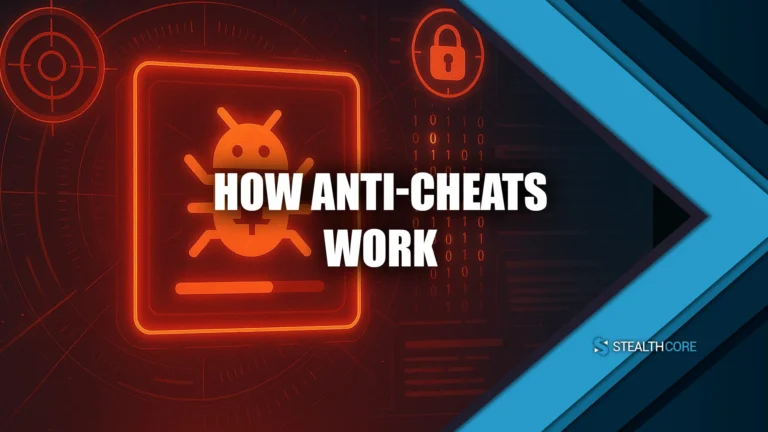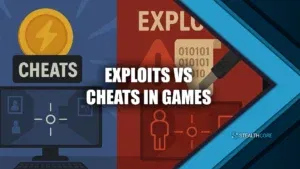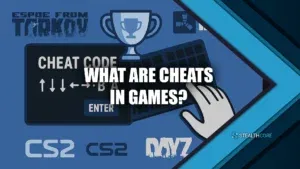“Why did I get banned when I used an undetected cheat?”
It’s a question many players ask after a sudden game ban. Just because a cheat claims to be undetected doesn’t mean you’re safe. Modern anti-cheat systems don’t just look at code, but they look at how you play, how your system behaves, and whether anything breaks expected patterns.
In this article, we’ll break down how anti-cheats work and why detection is more about your behavior than the cheat itself. Understanding this is the first step to staying safe and making smarter decisions.
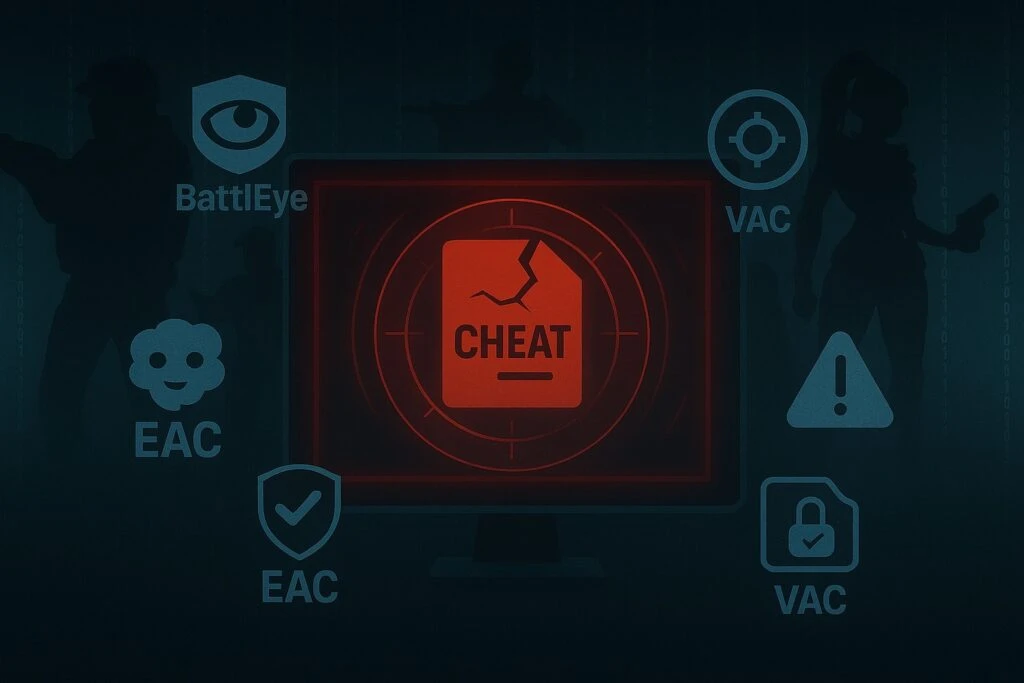
What Anti-Cheats Actually Do
At their core, anti-cheat systems aim to detect and prevent unfair gameplay by monitoring various aspects of the player’s environment both inside and outside the game.
They use a combination of file scanning, behavior tracking, server-side analytics, and even machine learning to find cheaters. Here’s a quick look at major anti-cheats in use today:
- BattlEye – Used by Escape from Tarkov, Arma, and Rust
- Easy Anti-Cheat (EAC) – Found in Rust, Fortnite, and Apex Legends
- Vanguard – Valorant Cheats use this deep kernel-level solution
- Valve Anti-Cheat (VAC) – Common in CS2 and other Valve titles
To understand the risks better, Undetectable vs Undetected Cheats explained what truly separates stealth from real invisibility in anti-cheat systems.
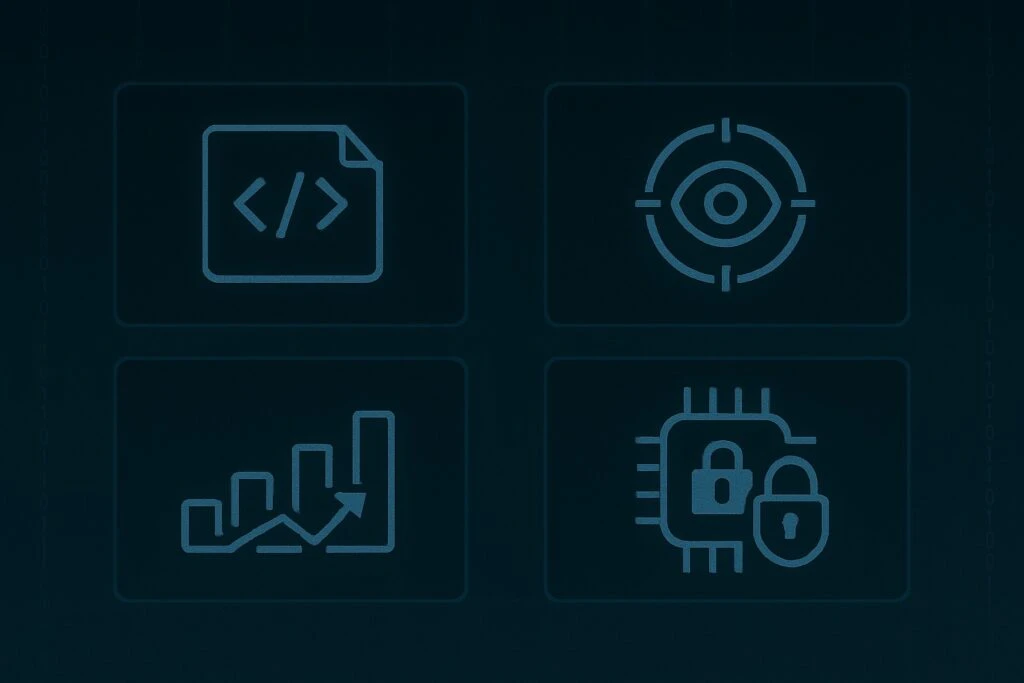
How Anti-Cheats Work: Four Core Detection Methods
1. Signature-Based Scans
This is the oldest form of detection and still actively used.
- It scans your memory or disk for known cheat signatures (code snippets, file names, DLLs).
- Public or copy-pasted cheats often get caught here.
- Many “undetected” cheats avoid this by changing the code slightly or using loaders.
Example: VAC might catch a popular free CS2 wallhack because it matches a known signature.
Downside: Easiest to bypass with private or obfuscated code.
Using advanced tools like our Escape from Tarkov Cheats can help stay ahead of signature-based bans with constantly updated codebases.
2. Behavioral Detection
Anti-cheats analyze how you play the game. If your behavior doesn’t match human norms, it raises a red flag.
- Mouse input: Movements too smooth, too precise, or lacking micro-corrections
- Reaction time: Snapping instantly to targets or reacting faster than humanly possible
- Aim paths: Linear aim-tracking that mimics aimbots
Example: Vanguard might monitor your crosshair path in Valorant. If you track multiple enemies through walls too perfectly over time, even if manually, you can be flagged.
This system is hard to fool long-term because it learns patterns. Combining this knowledge with tools like an HWID Spoofer can help reduce ban risk, but it won’t save you from behavioral flags.
3. Server-Side Stat Monitoring
Some games track your performance on the server side. They look for anomalies in:
- Loot per minute
- Headshot rate
- Distance of kills
- Movement routes and times
Example: In Escape from Tarkov, BattlEye may flag players who consistently extract with ultra-rare loot faster than normal players could, especially if it repeats across raids.
This method doesn’t rely on your system files, but watches your results. It’s a reason why simply using stealth code isn’t enough. You can learn how to cheat safely in games through our user-friendly guides.
4. Kernel-Level Scanning
This is the most aggressive technique.
- Kernel-level anti-cheats run before your operating system loads
- They access drivers, memory space, and even detect spoofers or system hooks
- Very hard to bypass without triggering protection systems
Example: Vanguard operates at the kernel level and can see custom mouse drivers, input spoofers, or memory readers even if your cheat is injected stealthily.
But with the right mindset and trusted Valorant cheats, you can overcome this watchdog.
Replay & AI Review Systems
Not all bans happen in real time. Some anti-cheats use replay systems or AI to flag subtle behavior after the fact.
- Replays are reviewed either manually or by AI models trained on legit vs cheat behaviors
- The system may delay a ban to observe longer-term patterns
- This often gives cheaters a false sense of security
Example: EAC or BattlEye may silently flag a player for suspicious aim over a few weeks before delivering a delayed ban.
Delayed bans are one reason why some players feel “safe” at first, only to be hit later.
That’s why many opt for our Rust cheats, because they are intricately designed to minimize behavioral detection and blend seamlessly with legit play.
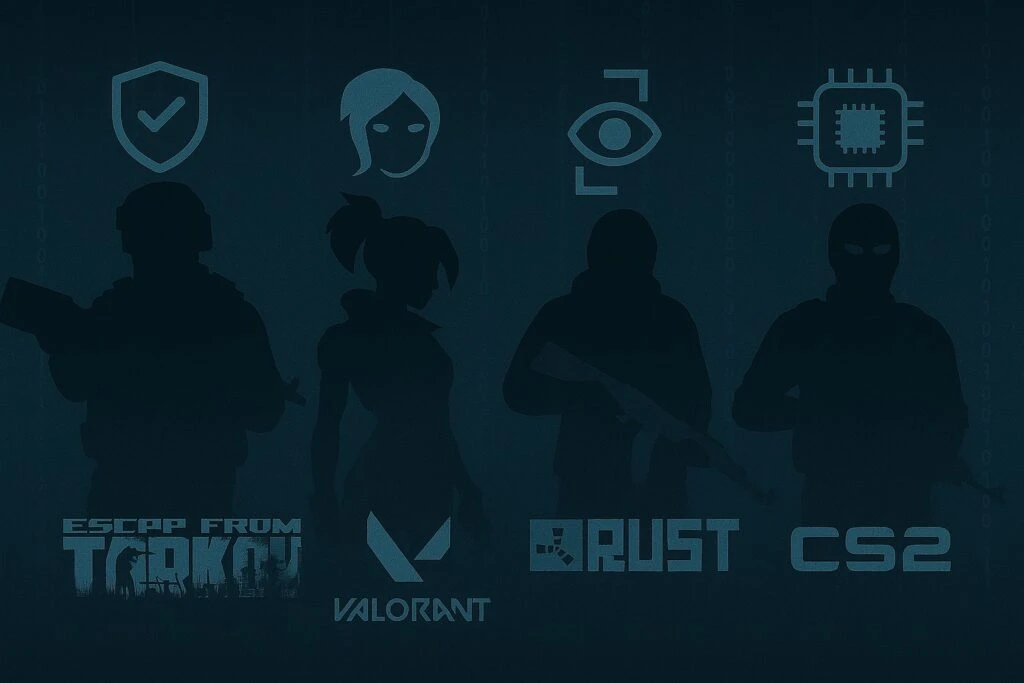
Games and Their Anti-Cheat Systems
Here’s how different titles apply anti-cheat methods:
- Valorant – Vanguard
- Kernel-level protection
- Behavioral and driver scanning
- One of the most aggressive anti-cheats in gaming
- Escape from Tarkov – BattlEye
- Focuses on stat tracking and delayed bans
- Behavior-based analysis especially on high-value loot runs
- Rust – EAC
- Uses stat triggers and player reports
- Known for fast server-side stat bans
- CS2 – VAC
- Signature scanning mostly
- Less aggressive but still flags known cheats
- Fortnite – EAC + Custom Server Systems
- Combines file scanning with Epic’s proprietary detection models
- Uses behavior and server monitoring
- DayZ – BattlEye
- Kernel-level anti-cheat system
- Supports a global ban system for cheaters using unique fingerprints
- League of Legends – Riot Vanguard
- Anti-cheat developed by Riot Games
- Employs client-side protections
- Implements hardware ID bans to prevent repeat offenders
- Apex Legends – EAC
- Utilizes a kernel-level anti-cheat service
- Employs additional layers of protection designed to detect, disrupt, and disable cheating software
Though implementation differs, these games rely on shared detection logic.
Conclusion
Even if your cheat is marketed as “undetected,” that doesn’t mean you’re invisible. Anti-cheats don’t just look for code, they look for what you do. That includes your stats, your inputs, and your patterns.
To stay safe, understand how anti-cheats work and never rely on code alone. Smart usage and stealth strategies matter just as much as what tool you use.
